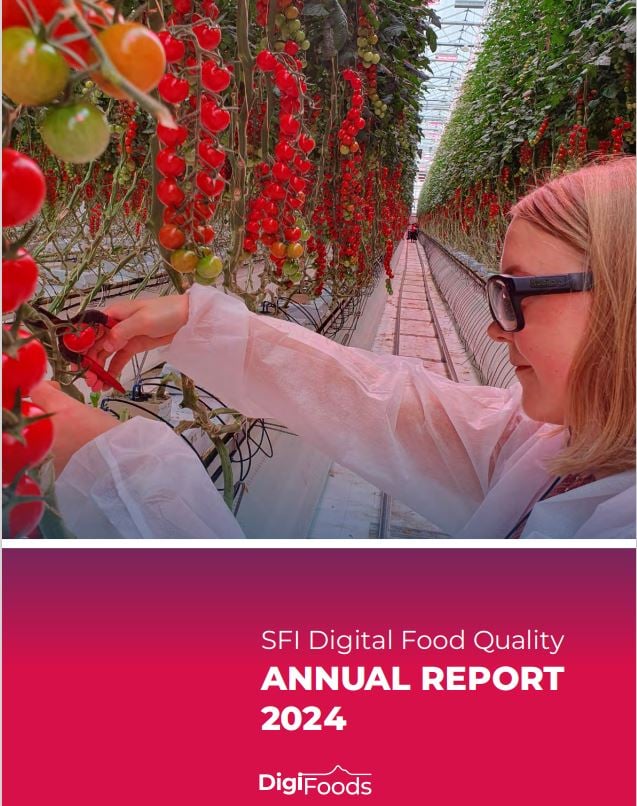2024 was a good year for DigiFoods. Scientific highlights have been many, the level of innovation in the research is high, and we have contributed to real innovation in the companies.

You can read about our achievements in 2024 in the annual report.
We conducted small and large measurement campaigns in the process lines. Some lasted a day, others took weeks. We thank the companies for opening the doors, providing technology, and engaging in this kind of work. This sort of activity is the core of DigiFoods, where we can learn about the products and processes, consider the challenges, develop and test the sensors, gather the partners to discuss the results, and together see potential innovation ahead.
Our work was structured into twelve research projects, spanning topics from sensor and application development to robotics, process analysis and consumer demands. We have worked on the following cases: Dry matter in potatoes, dry matter in cheese, core temperature in fish cakes, fat content in sausages and beef loins, fat and protein in poultry and salmon by-products, as well as quality attributes in salmon fillets. All these methods are novel and can significantly contribute to process improvement
Fourier-transform infrared spectroscopy (FTIR) shows promise for measuring protein composition in peptide blends from enzymatic hydrolysis, and there is currently no industrial solution for such measurements. A portable FTIR instrument, both developed and built in DigiFoods, has now been tested with excellent results, enabling industry measurements, improving the understanding and control of these bioprocesses.
We have demonstrated that Raman is suitable for determination of various food quality attributes of heterogenous foods directly in industrial processes. We are now benchmarking Raman against NIR spectroscopy with respect to robustness regarding variation in sample structure, as well as cost of calibration and calibration maintenance.
We have developed a new NIR sensor for non-contact sub-surface measurements. It can be used for sugar measurement in strawberries in the field and in tomatoes on a packing line. The NIR sensor has demonstrated potential for in-line assessment of core temperature in fish cakes and meat content in king crabs. A commercialization project for this technology is ongoing.
Hyperspectral camera technology has been developed for industrial measurement of fat, pigment, blood and melanin spots in salmon fillets and the technology was put into commercial use in 2024.
In 2024 we had ten PhDs/post-docs connected to DigiFoods. We also recruited 4 master students who contributed to our work. Our students are well integrated in the different projects and contribute to many of the centre results and dissemination.
You can read more about our achievements in 2024 in the annual report.
Contact person
Jens Petter Wold
Senior Scientist

